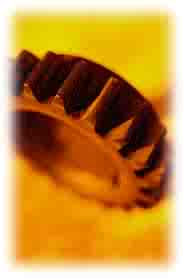|
Welcome
The IEEE Ottawa TMC/SSIT/PCS joint chapter TM14/SIT30/PC26) was
created in 2008 to better serve members interested in engineering management,
technology management, social implications of technology, and
professional (written, web, etc) communications.
PCS is dedicated to understanding and promoting effective communication in
engineering, scientific, and other technical environments. Its interests
include the study, preparation, production, delivery, use, improvement,
and promotion of human communication in all media in engineering and other
technical and professional environments.
SSIT focuses on environmental, economics, health, and safety
implications of technology; engineering ethics and professional
responsibility; engineering education in social implications of technology;
history of electrotechnology; technical expertise and public policy; peace
technology; as well as on social issues related to energy, information
technology and telecommunications.
The Technology Management Council (TMC) was formed in 2007 as new structure for
the Engineering Management Society (EMS). Chapters which were EMS Chapters in
2007, including the Ottawa EMS Chapter, are now TMC chapters. The TMC member
societies are:
Broadcast Technology Society,
Circuits
& Systems Society,
Communications
Society,
Computer
Society,
Electromagnetic Compatibility Society,
Electron
Devices Society,
Industrial
Electronics Society,
Photonics
Society,
Professional
Communication Society,
Reliability
Society,
Signal Processing Society,
Solid State
Circuits Society,
Systems Man
and Cybernetics Society,
Vehicular
Technology Society
Tuesday May 21, 2013
GLOBAL SYSTEMS-OF-SYSTEMS
Jointly organized by IEEE Ottawa AICN;
TMC/PCS/SSIT Joint Chapter and GOLD
Overview
Paul E. Gartz is an IEEE Distinguished Lecturer of the Aerospace
and Electronic Systems Society (AESS), he is visiting Ottawa as part of
distingushed lecturer canada east area tour. Paul is a member of the Boeing
Technical Fellowship,former president of IEEE AESS, and IEEE global lecturer
is the invited speaker. With over forty years of experience in large-scale
and multi-billion dollar programs on commercial, defense, and civil project
in aerospace and communications industries, Paul will talk about “Systems-of-Systems
(SoS) & Systems Engineering”.
The world continues to become more technical, more integrated and more complicated.
“Systems”, with their human interfaces, now abound, and these have become much more
interconnected resulting in societal-changing capabilities. Is there a way to both
increase business opportunities and address these issues? Now emergent are what are
called “Systems-of-Systems (SoSs)”. These are a new way to view and optimize the
interdependencies of major groupings of large numbers of products, services, technologies,
information and humans that together provide higher societal functions. One example is
air transportation where the assemblage of airplanes, radars, satellites, ground stations,
airlines, weather, airports, etc. form a global, air transportation SoS. The talk will review
21st century best practices for advanced, systems engineering and systems thinking. It can
be practically applied at any level of complexity or size to improve business and technical
results. As a national skill base, it can advance whole industry sectors and even a country
for competitive advantage at a global and GDP level. Japan vividly demonstrated this via
the Toyota method from the 1960s onward.
Date & Time
Tuesday May 21, 2013
9:00 a.m. to 11:00 a.m.
Event Location
University of Ottawa, SITE Building, Room 5084
(University of Ottawa campus map)
Parking
Paid parking at and near the university; very good public
transport access.
Registration
Room size is limited and registration is on a first
come basis; send an e-mail to both: Barbara Waruszynski
,
Barbara.Waruszynski@drdc-rddc.gc.ca(TMC/SSIT/PCS chapter SSIT vice-chair) or Alfredo Herrera, Alfredo.Herrera@ieee.org (TMC/SSIT/PCS
chapter chair).
Tuesday May 28, 2013
AN INTRODUCTION TO
LEAN-AGILE DEVELOPMENT
Jointly organized by IEEE Ottawa AICN;
TMC/PCS/SSIT Joint Chapter and Photonics Chapter
Overview
Ellen Grove is an Agile coach who helps teams to do better work by coaching
them to create the circumstances in which they can work most productively
and effectively. Her Agile coaching practice is founded in over 15 years
experience leading software testing, development, and implementation teams in
global enterprises; a passion for exploratory software testing and
user-centered design; and a background in community organization. Ellen uses
team-building and facilitation approaches to support the transition to
collaborative Agile work practices at the team, managerial, and corporate
levels. She has also conquered the challenges of extending Scrum roll-outs
to off-shore development partners and multi-site project teams for large
enterprise and public sector clients. Ellen presents frequently at
Agile conferences: in 2012-2013 , the list includes San Francisco
Agile 2012, Agile Open NYC 2012, Agile Tour Montreal and Ottawa 2012, Agile
Games 2013. In addition to holding an Honours Bachelor of Arts & Science
degree from McMaster University, Ellen is a Certified Scrum Master, an
Open Space facilitator, and a StrategicPlay® certified facilitator in
LEGO® SERIOUS PLAY® methods.
Date & Time
Tuesday May 28, 2013
6:30 p.m. to 8:30 p.m.
Agenda
-
6:30pm networking (30 min)
-
7:00pm presentation and Q/A (60 min)
-
8:00pm networking (30 min)
Event Location
Algonquin College, Building
T, Room T.129: 1385 Woodroffe Ave., Ottawa
(Algoquin Woodroof campus map)
Parking
No fee after 5 p.m. at the Parking
Lots 8 & 9. Please respect restricted areas.
Registration
Room size is limited and registration is on a first
come basis; send an e-mail to both: Wahib
Thabet,
wthabet@gmail.com(TMC/SSIT/PCS chapter TMC vice-chair) and Bhagvat Joshi, bjoshi@ieee.org (AICN
chapter chair).
We welcome you to submit suggested topics for
presentations. If you wish to volunteer to help organise a seminar, do not
hesitate and contact TMC/PCS/SSIT Officers:
You may become a member at http://www.ieee.org
|



